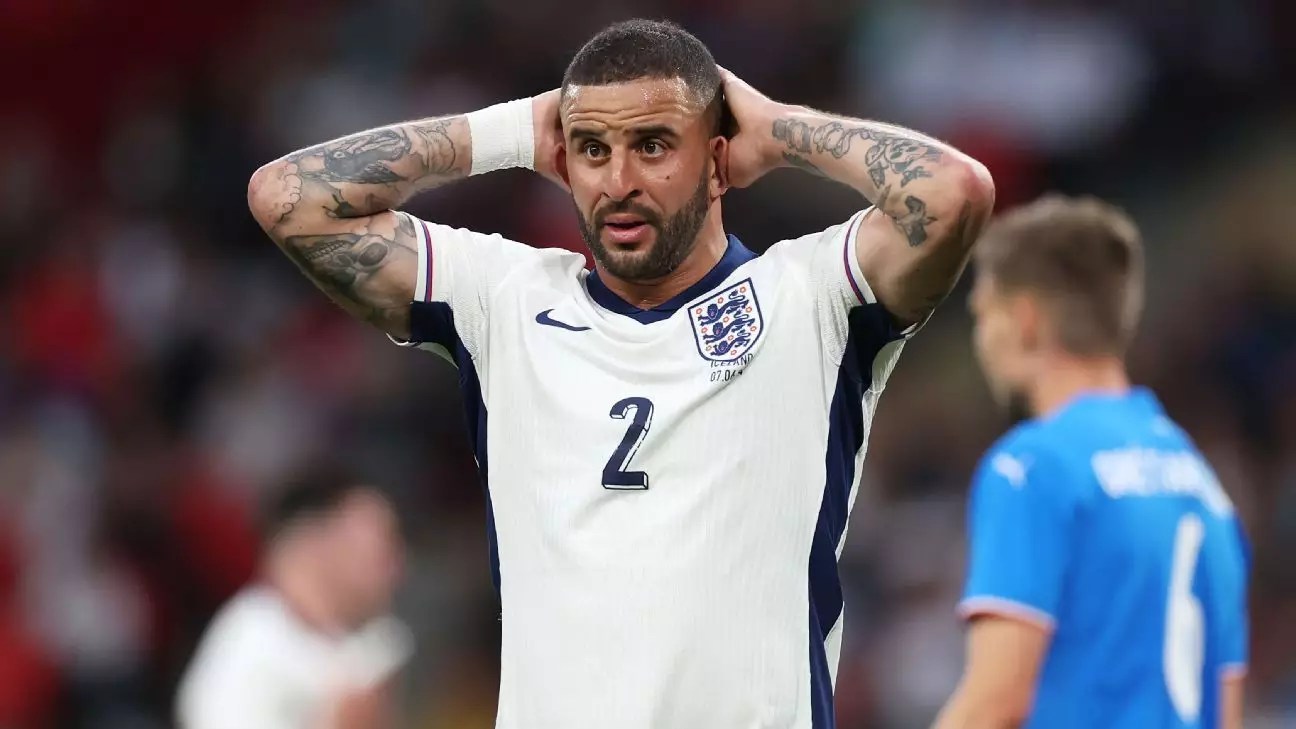In modern football, the management of player fitness and health is an increasingly complex issue. Pep Guardiola, the esteemed manager of Manchester City, has recently highlighted a growing concern regarding the lack of communication between club and national team managers. This situation came to a head when Kyle Walker returned to Manchester City with a knee injury after fulfilling his international duties with England. Such incidents not only affect the immediate team dynamics but have broader implications on strategies and player development.
Guardiola’s emphasis on better communication reflects an age-old problem in football: the often disjointed relationship between clubs and international teams. Once upon a time, it was customary for national team coaches to reach out directly to club managers regarding player fitness and health. Guardiola nostalgically recalls a time when this collaboration was the norm. However, modern practices appear to have eroded this vital line of dialogue. The often conflicting interests of clubs and national teams can lead to situations where players return from international duty unfit, as was the case with Walker and previously with John Stones.
Lessons from Past Experiences
Guardiola’s frustrations aren’t unfounded. The narrative surrounding Stones provides a cautionary tale. The England defender sustained an injury during a friendly match against Belgium while on national duty, which led to significant ramifications for Manchester City, particularly during a crucial point in the season. Guardiola’s anger at this particular instance underscores a larger issue: the repercussions of injuries sustained during international friendlies can severely impact club form and success.
These reflections reveal the emotional toll that such injuries take not just on managers but also on the players themselves. The essence of teamwork is disrupted when players are sidelined, leading to an inevitable decline in performance—a significant concern for a club with the aspirations of Manchester City.
Future Implications for Team Strategy
As Guardiola prepares his squad for the critical Champions League match against Sparta Prague, the absence of key player Kevin De Bruyne—also recovering from an injury—highlights the cascading effects of fitness issues. De Bruyne’s situation serves as a reminder of the fragility of an athlete’s physical condition, especially as they age. Guardiola’s remarks emphasize the need for players to be completely fit before stepping back into high-stakes matches; without full fitness, they cannot unleash their true potential.
The long-term solution likely involves establishing a more cohesive framework where clubs and national federations can work collaboratively to safeguard player health. This dual responsibility should foster an environment where both parties prioritize the athletes’ well-being, paving the way for a future where communication is re-established as a cornerstone of the sport. In a fast-paced modern football landscape, the stakes are too high for any miscommunication to jeopardize player health and team performance.
Guardiola’s call for better communication emphasizes a critical need for a more unified approach to player management in football. By fostering dialogue between club managers and national team coaches, the sport can move towards a model that safeguards players’ health and maintains the integrity of both the club and international competitions.


Leave a Reply